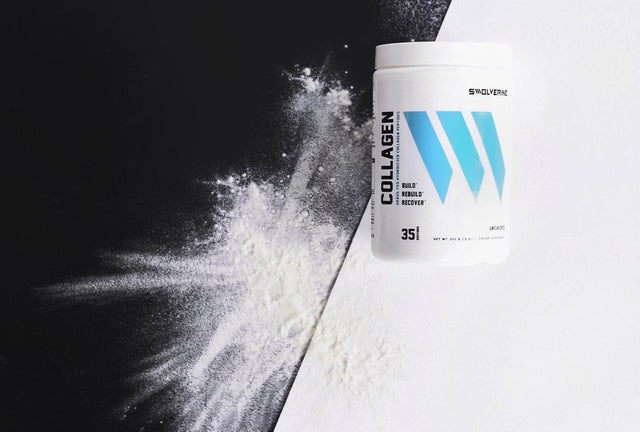Are you looking to maximize your fitness results with whey protein, but unsure about the right daily amount? You're not alone! Many fitness enthusiasts often find themselves grappling with questions about optimal intake. Whey protein is a powerhouse supplement that can support muscle growth, aid recovery, and boost overall performance, but figuring out how much to take can be confusing. In this ultimate guide, we'll break down the factors that influence your daily whey protein needs, from your activity level and body composition to your fitness goals.
Whether you're a seasoned athlete or just starting on your fitness journey, understanding the right dosage can elevate your results and enhance your well-being. Get ready to unlock the full potential of whey protein and discover how much you should be taking daily to achieve your desired results!
How Much Whey Protein Should You Take Daily? The Ultimate Guide to Optimal Intake
Understanding Whey Protein: What It Is and How It Works
Whey protein is a highly popular dietary supplement derived from milk during the cheese-making process. This protein powerhouse is packed with essential amino acids—the building blocks of muscle tissue. It’s available in three primary forms:
-
Whey Protein Concentrate: Contains ~70–80% protein along with some fats and lactose.
-
Whey Protein Isolate: More refined, with 90%+ protein and minimal lactose or fat.
-
Whey Protein Hydrolysate: Pre-digested for faster absorption and reduced allergen potential.
What makes whey stand out is its rapid digestion and absorption. Once ingested, it breaks down quickly into amino acids and is rapidly transported to muscle tissue, making it ideal for post-workout recovery. Whey also boosts the release of anabolic hormones like insulin, supporting muscle protein synthesis and growth.
Beyond performance, whey supports immune function due to its rich concentration of immunoglobulins and lactoferrin. It also aids in weight management by promoting satiety, and research shows it may help stabilize blood sugar levels—beneficial for individuals with insulin sensitivity or type 2 diabetes.
“Whey protein’s rapid digestibility and high leucine content make it a superior choice for stimulating muscle protein synthesis post-exercise.” — Phillips, American Journal of Clinical Nutrition, 2016
Daily Protein Requirements: How Much Do You Really Need?
The Recommended Dietary Allowance (RDA) for protein is 0.8g/kg of body weight. But that’s a bare minimum for sedentary individuals. If you’re active, your needs increase substantially:
-
Endurance athletes: 1.2–1.4g/kg
-
Strength athletes: 1.6–2.2g/kg
-
Fat loss (muscle preservation): 1.8–2.2g/kg
-
Muscle gain (hypertrophy): 2.0–2.4g/kg
For example, a 170 lb (77 kg) individual seeking to build muscle may benefit from consuming 155–185 grams of protein per day.
“Active individuals require nearly double the RDA to support lean mass and metabolic health.” — Jäger et al., Journal of the International Society of Sports Nutrition, 2017
Factors That Influence Whey Protein Intake
Several variables influence how much whey protein you should take:
-
Training Intensity & Frequency – More volume and intensity increases protein needs.
-
Fitness Goals – Muscle gain, fat loss, maintenance, or performance enhancement.
-
Body Composition – More lean muscle mass = higher daily protein requirement.
-
Age & Hormonal Status – Older adults and individuals in catabolic states need more.
-
Dietary Intake – Those consuming less complete protein from whole foods may benefit from whey supplementation.
Benefits of Whey Protein Supplementation
Muscle Recovery & Growth
Whey protein is rich in BCAAs, particularly leucine, which directly activates muscle protein synthesis (MPS). This makes it one of the most effective supplements for promoting muscle repair, growth, and reduced soreness post-exercise.
“Leucine acts as a trigger for MPS and is most effective when delivered rapidly, as seen with whey protein.” — Churchward-Venne et al., Frontiers in Nutrition, 2019
Weight Management
Whey increases satiety hormones like GLP-1 and reduces ghrelin, the hunger hormone. This helps with appetite control and fat loss.
“Whey protein can significantly improve satiety and aid weight loss when part of a reduced-calorie diet.” — Pasiakos et al., Advances in Nutrition, 2015
Immune Health
Whey contains bioactive peptides, including lactoferrin and immunoglobulins, which support the immune system. It also boosts glutathione, a critical antioxidant.
How to Incorporate Whey Protein Into Your Diet
-
Post-Workout Shake: 25–40g whey isolate within 30 minutes of training.
-
Meal Replacement: Mix with fruit, oats, or nut butter for a nutrient-dense meal.
-
Between Meals: Use as a bridge between large meals to increase protein distribution throughout the day.
-
Stick with whey isolate if you’re lactose intolerant.
-
Pair with a carbohydrate source post-workout to maximize glycogen replenishment.
-
Track your macros to ensure total daily protein aligns with your goals.
-
Avoid over-reliance on shakes—aim to get most protein from whole foods.
Benefits of Whey Protein Supplementation
Whey protein offers numerous benefits beyond simply supporting muscle growth. It's one of the most researched and effective supplements for fitness and general health.
Muscle Recovery and Growth
After intense workouts, muscles experience microtears that require repair. Whey protein is rich in branched-chain amino acids (BCAAs), particularly leucine, which plays a key role in muscle protein synthesis.
“Leucine directly stimulates muscle protein synthesis, making whey protein a powerful tool for post-exercise recovery and muscle hypertrophy.” — Phillips, American Journal of Clinical Nutrition, 2016
Whey is rapidly digested and absorbed, making it ideal for immediately post-workout consumption. It helps reduce delayed-onset muscle soreness (DOMS) and supports faster muscle recovery.
Immune Support and Antioxidant Production
Whey contains bioactive peptides like lactoferrin and immunoglobulins, and it increases glutathione—a powerful antioxidant that plays a central role in immune defense and detoxification.
“Whey protein enhances immune response and increases glutathione levels, improving cellular protection.” — Lands et al., Journal of Applied Physiology, 1999
Weight Management and Fat Loss
Whey helps with weight control by increasing satiety and reducing appetite. Its high thermic effect and impact on satiety hormones make it a powerful tool in maintaining or creating a caloric deficit.
“Increased dietary protein, especially from whey, promotes fat loss and muscle retention during weight reduction.” — Leidy et al., Obesity, 2007
Recommended Dosages for Different Goals
Muscle Growth
-
1.6–2.2g/kg body weight per day
-
A 70 kg person = 112–154g protein/day
-
Whey protein can account for 25–50g of this daily total, depending on dietary intake
Fat Loss
-
1.2–1.6g/kg body weight per day
-
Helps preserve lean mass while in a deficit
General Health & Maintenance
-
1.0–1.2g/kg body weight per day
-
Supports cellular function, muscle preservation, and immune defense
Distribute your intake evenly across meals to maximize muscle protein synthesis (MPS) and recovery.
Timing Your Whey Protein Intake for Maximum Benefits
Post-Workout
-
Take within 30–60 minutes of training
-
Maximizes recovery during the “anabolic window”
Pre-Workout
-
Consuming 20–30g of whey before training can minimize muscle breakdown and supply amino acids during prolonged exercise
Throughout the Day
-
Include 20–40g of high-quality protein (from food or whey) every 3–4 hours
-
This steady delivery helps maintain MPS and supports muscle retention
“Even distribution of protein intake across meals results in greater anabolic response than skewed intake patterns.” — Areta et al., Journal of Physiology, 2013
Potential Side Effects of Excessive Whey Protein
For most healthy individuals, whey is safe and well-tolerated. However, consuming it in excess or without accounting for other dietary factors can cause issues:
Digestive Discomfort
-
Gas, bloating, or diarrhea, especially in those sensitive to lactose
-
Opt for whey isolate or hydrolysate to reduce symptoms
Kidney Strain (In Those with Preexisting Conditions)
-
No evidence suggests high protein intake harms healthy kidneys
-
Stay hydrated and maintain a balanced diet to support renal function
Micronutrient Imbalance
-
Over-reliance on whey may lead to nutrient gaps
-
Ensure your diet includes a variety of whole foods, fruits, and vegetables
“High protein intake is not harmful to kidney function in healthy adults.” — Poortmans & Dellalieux, International Journal of Sports Nutrition, 2000
Comparing Whey Protein with Other Protein Sources
| Protein Type | Digestion Rate | Leucine Content | Ideal Timing | Best For |
|---|---|---|---|---|
| Whey Protein | Fast | High | Post-workout | Recovery, muscle growth |
| Casein Protein | Slow | Moderate | Before bed | Overnight muscle repair |
| Soy/Plant Proteins | Moderate | Lower (varies) | Anytime (blend preferred) | Vegans, general supplementation |
| Whole Food Proteins | Slow to moderate | Balanced | Any meal | Nutrient diversity |
“Combining plant-based proteins like pea and rice ensures a complete amino acid profile.” — Mariotti & Gardner, Nutrition Journal, 2019
Tips for Choosing the Right Whey Protein Supplement
1. Choose the Right Type
-
Whey Concentrate: Budget-friendly, contains some lactose
-
Whey Isolate: Higher protein, low lactose and fat
-
Hydrolysate: Pre-digested for faster absorption, more expensive
2. Scan the Label
-
Look for at least 20g protein/serving
-
Avoid excessive sugar, fillers, and artificial ingredients
3. Prioritize Quality
-
Opt for grass-fed, cold-processed whey
-
Choose brands with third-party testing for purity and potency
“Third-party certification provides assurance of ingredient integrity and safety.” — U.S. Pharmacopeia, Dietary Supplement Verification Program
Why Swolverine’s Grass-Fed Whey Protein Isolate Is the Ultimate Choice
When it comes to whey protein, not all supplements are created equal. Swolverine's Grass-Fed Whey Protein Isolate stands out as one of the cleanest, most effective options on the market. Sourced from 100% grass-fed cows, it’s micro-filtered to deliver 26g of ultra-pure protein per serving with zero artificial ingredients, and less than 1g of carbs and fat—making it ideal for anyone looking to build lean muscle, accelerate recovery, or support weight loss without the bloat.
Unlike many mass-market proteins that are filled with additives or blends, Swolverine’s formula is single-sourced, non-GMO, gluten-free, and contains no proprietary blends, ensuring full transparency and superior digestibility. Plus, with naturally high levels of BCAAs and essential amino acids, it fuels muscle protein synthesis and immune health—whether you’re an athlete, lifter, or simply living an active lifestyle.
“Swolverine’s Whey Protein Isolate is designed for high performance—clean, effective, and backed by science.”
If you're serious about quality, recovery, and results, Swolverine Whey Isolate is more than just a supplement—it's a foundational part of your nutrition strategy.
👉 Shop Swolverine Whey Protein Isolate and take your performance to the next level.
Conclusion: Finding Your Optimal Whey Protein Intake
Determining the right amount of whey protein to take daily can significantly enhance your fitness results and overall well-being. By understanding the factors that influence your protein needs, such as activity level, body composition, and fitness goals, you can tailor your intake to meet your specific requirements. Incorporating whey protein strategically, whether for muscle building, weight loss, or general health, can help you unlock its full potential.
Remember to consider the timing of your whey protein intake to maximize its benefits, and be mindful of potential side effects of excessive consumption. Comparing whey protein with other protein sources and choosing a high-quality supplement can further optimize your results. By taking a personalized approach and maintaining a balanced diet, you can effectively incorporate whey protein into your routine and achieve your desired health and fitness outcomes.
Get ready to elevate your fitness journey with the power of whey protein. Whether you're a seasoned athlete or just starting out, understanding and optimizing your whey protein intake can make all the difference in reaching your goals. With the right knowledge and approach, you can harness the benefits of this powerhouse supplement and take your performance to the next level.
Find similar articles:
Supplements












